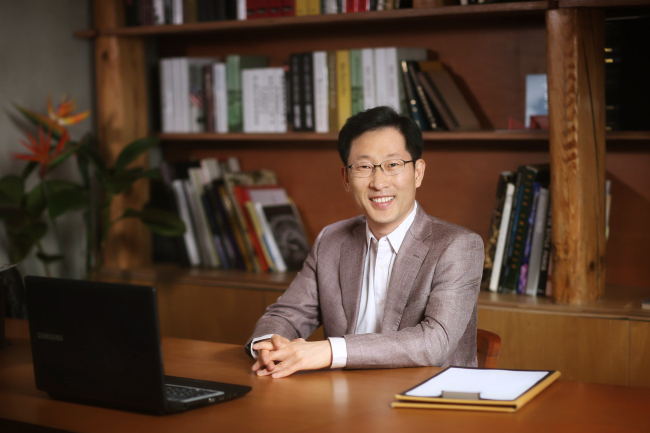South Korean biosimilar developer Samsung Bioepis said Saturday that Flixabi, its biosimilar drug referencing Johnson & Johnson’s Remicade (infliximab), has been recommended for approval in the European Union.
The European Medicines Agency’s Committee for Medicinal Products for Human Use has adopted a “positive opinion” on Flixabi for the treatment of a number of diseases including rheumatoid arthritis, Crohn’s disease, and ulcerative colitis, according to Bioepis.
 |
Samsung Bioepis president and CEO Ko Han-sung (Samsung Bioepis) |
The committee’s opinion will now be referred to the European Commission for final marketing authorization, bringing the Korean drugmaker a step closer to commercializing its second biosimilar in the EU.
“The CHMP’s positive opinion on Flixabi brings us a step closer to broadening affordable, high-quality treatment options for autoimmune patients across Europe,” Samsung Bioepis president and CEO Ko Han-sung said in a statement.
Flixabi is Samsung Bioepis’ second biosimilar to receive positive approval recommendation in the EU. Bioepis’ Enbrel (etanercept) biosimilar, Benepali, was already approved in the region in 2015. Benepali is currently sold in the U.K. and Norway, which is also covered by the EMA.
Samsung Bioepis declined to comment on Flixabi’s approval prospects or commercialization agenda, citing regulatory compliance. However, Flixabi’s approval will likely come in June, as the EC usually takes two to three months to approve a drug after the committee’s recommendation.
If approved, Flixabi will be commercialized in the EU by Bioepis’ local marketing partner Biogen. It would also become the second Remicade biosimilar to be commercialized in the EU after Celltrion’s Remsima.
“We do not view Samsung Bioepis’ foreseen entry as a potential threat as Remsima already enjoys a high level of trust (in Europe) as a first mover,” a Celltrion spokesperson told The Korea Herald.
“Rather, we foresee positive impacts such as the expansion of the biosimilars market,” the official said, pointing out that the two companies could “work together” to promote the use of biosimilars -- an emerging category of cheaper, near-replicas of brand-name biologic drugs that have lost patent protection.
Meanwhile Samsung’s Remicade biosimilar was already approved for sale in Korea under the name Renflexis last December.
Renflexis is scheduled to hit the Korean market in June at 363,530 won ($315) per box, around 5 percent cheaper than the original drug, according to Bioepis’ domestic marketing partner MSD Korea.
Established in 2012, Samsung Bioepis is an affiliate of Samsung Group specializing in biosimilars development, formed as a joint venture between Samsung BioLogics and U.S.-based company Biogen.
By Sohn Ji-young (
jys@heraldcorp.com)






![[Herald Interview] 'Trump will use tariffs as first line of defense for American manufacturing'](http://res.heraldm.com/phpwas/restmb_idxmake.php?idx=644&simg=/content/image/2024/11/26/20241126050017_0.jpg)
![[Exclusive] Hyundai Mobis eyes closer ties with BYD](http://res.heraldm.com/phpwas/restmb_idxmake.php?idx=644&simg=/content/image/2024/11/25/20241125050044_0.jpg)
